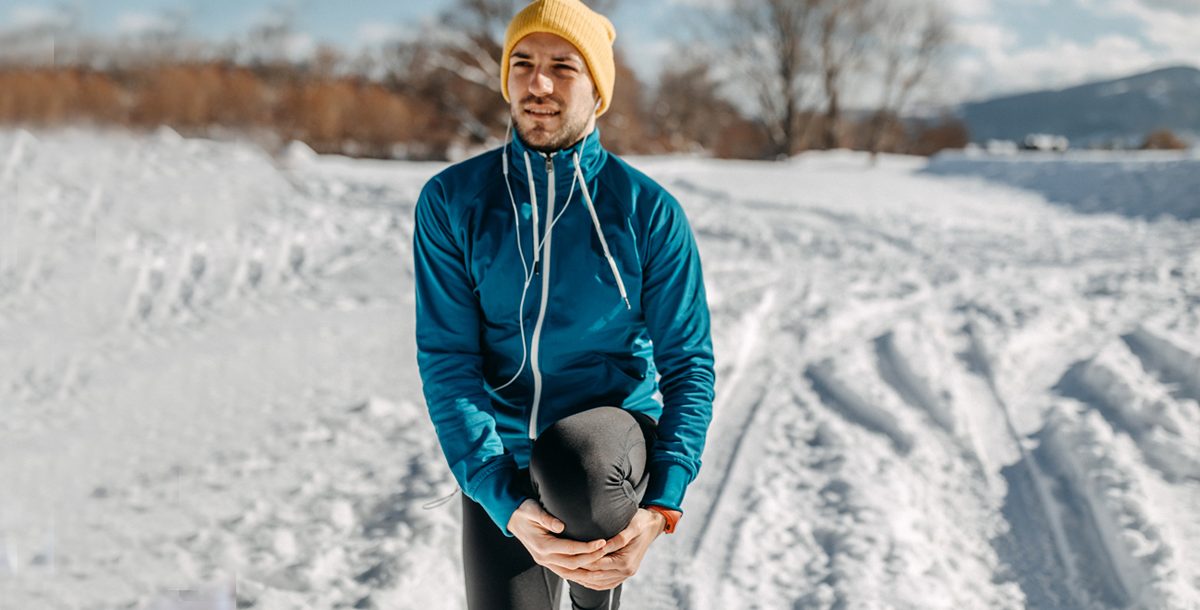Trying to get in shape or looking to stay active? The new year is always a great time to change habits and set new goals. However, as the days grow colder in the winter months, this can seem like a very difficult time to add exercise into your daily routine.
The cold doesn’t have to stop you from getting active outside, but it does require more planning. Tracy Moody Cessna, PT, DPT, OMT-C, RRCA certified running coach, is a physical therapist at Mercy Health – Cincinnati Sports Medicine and Orthopedic Center, Bridgetown. She shares her expertise as well as her top tips for outdoor exercise in the winter.
- It is important to wear proper clothing during your outdoor activities in the winter: hats, gloves, scarves and hand warmers.
- Avoid cotton workout clothes as they can get wet with sweat or snow and become cold. Use synthetics that are more wicking in nature and allow you to stay warmer. Spandex is a great base layer too. Also, everyone’s body is different. Some might need two layers, others may be fine in shorts. So, listen to your body.
- Be cautious of slippery roads, ice on sidewalks, and other conditions to help you avoid common winter injuries.
- Consider taking a midday run instead of one in the morning or evening. It is more difficult for cars to see pedestrians during the darker hours of the day.
- Find and sign up for a running group! It is fun to have company and will make you more visible on the road.
- When going on a run, tell someone where you are running. Carry a phone and a form of ID in case of emergencies. Reflective gear is great too.
- If you run with music, consider using headphones or speakers that aren’t noise cancelling and allow you to hear the traffic around you.
- Local parks and nature observatories make great locations for exercising in the winter. Look for paths that are mostly cleared or have soft powder that hasn’t been packed down by vehicles or footsteps.
- If you are going on snowy trails, consider trail shoes or traction stabilizers to wear over the top your running shoes.
- Consider spending smaller lengths of time outdoors by starting a walking regimen while the colder weather is around.
- Those with asthma or other breathing conditions may find it more difficult to be outdoors for extended periods of time in cold weather. Always use caution and consider wearing face masks when outside.
- Those with arthritis and joint pain can have a more difficult time in the winter too. Try stretching and doing small exercises before going outside.
- Snow shoveling can be a great form of exercise while also clearing your driveway! However, remember to keep you heart healthy during this activity.
Talk to your primary care physician if you have concerns about being active outdoors for extended periods of time during the winter.
Learn more about the sports and orthopedic services available at Mercy Health.







